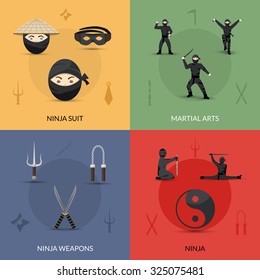The Development And Historical Value Of Martial Arts Across Different Societies
The Development And Historical Value Of Martial Arts Across Different Societies
Blog Article
Author-Wilcox Workman
Martial arts have an interesting history that spans centuries and continents. You might find it intriguing exactly how ancient techniques like Shuai Jiao and Kalaripayattu prepared for contemporary battle techniques. These self-controls not just highlight physical skills but additionally reflect the cultures that birthed them. As you explore their advancement, consider just how globalization has actually transformed these traditional forms right into crossbreed styles. What impacts do you believe have shaped today's martial arts landscape?
Ancient Martial arts: The Structures of Battle
As you explore the world of ancient martial arts, you'll find the abundant foundations that shaped fight methods throughout societies. Very early techniques focused on Self-Defense and survival, commonly including strikes, grappling, and weaponry.
In is there any age limit for martial arts , as an example, techniques like Shuai Jiao emphasized throws and joint locks, while India's Kalaripayattu showcased dexterity and fluid movement. https://bestmartialartsforfatpeop10954.thelateblog.com/34897361/typical-martial-arts-vs-modern-battle-sports-recognizing-the-key-differences developed Kenjutsu, a polished swordsmanship that highlighted technique and strategy.
These martial arts served not just for fight yet additionally as a way of personal growth, instilling values like regard and perseverance. The blending of these strategies over time prepared for the varied martial arts you see today, each showing the distinct ideologies and needs of its culture.
The Social Impact on Martial Arts Growth
While martial arts usually reflect the sensible demands of a society, they likewise symbolize the social values and ideas of their origins. When you explore different martial arts, you'll see just how they're affected by religious beliefs, viewpoint, and social norms.
For example, the emphasis on respect and self-control in Japanese martial arts comes from Zen Buddhism and samurai society. In contrast, Brazilian Jiu-Jitsu promotes flexibility and technique, formed by the requirement for effectiveness in a varied, multicultural environment.
You could locate that the rituals, uniforms, and training techniques show an area's background and identity. By recognizing these cultural influences, you grow your appreciation of martial arts and their duty in shaping human experiences across the globe.
Modern Adaptations and the Globalization of Martial arts
Martial arts have changed significantly in current decades, adapting to modern culture and global influences. You'll see that typical forms have mixed with contemporary techniques, creating hybrid styles like mixed martial arts. These adaptations accommodate varied audiences, making martial arts accessible and attractive worldwide.
With the surge of social networks and digital systems, you can find tutorials and competitions from all corners of the globe, damaging geographical barriers. This globalization has actually caused a common admiration for different techniques, from Brazilian Jiu-Jitsu to Taekwondo.
As you engage with these arts, you'll realize they're not almost fight; they promote physical fitness, self-control, and psychological health.
Ultimately, contemporary adjustments have actually improved the martial arts landscape, making it a vibrant and progressing practice.
Final thought
In discovering the background and evolution of martial arts, you uncover a remarkable mix of methods, cultures, and philosophies. From ancient techniques like Shuai Jiao and Kalaripayattu to the modern flexibility seen in mixed martial arts, martial arts show mankind's mission for Self-Defense and personal development. As relevant web site engage with these practices, you not only acquire skills yet likewise a much deeper admiration for the varied traditions that shape our globe today. So, proceed your journey and accept the art of battle!
